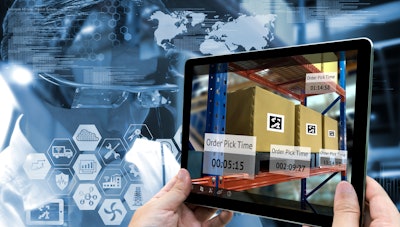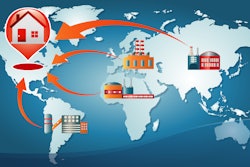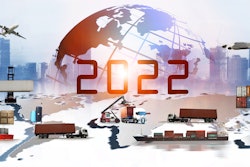
The ripple effect of the pandemic lingers in a variety of economic sectors, and on a global scale, still affects the way we do business. One particularly apparent example of this is the current global supply chain crisis.
While we aren’t experiencing empty shelves like we were at the beginning of the pandemic, we might be soon if countermeasures are not taken—and fast. Remember the shortages in toilet paper, household cleaning supplies and hand sanitizer in the spring of 2020, but now we’re seeing this issue play out on a much broader scale. Many food and beverage manufacturers, in particular, are having issues getting raw materials from overseas, which creates an inability to manufacture goods at pace. They’re stuck with a limited supply and trying to figure out how to meet an ever-increasing demand.
The current supply chain disruptions sent many into a panic as they began going through their holiday gift lists and planning festive meals. Grocery stores were hit with empty shelves and gift purchasers were in a frenzy to purchase well in advance of holiday parties due to forecasted delays and the threat of things not arriving in time. The lack of reliability in the global supply chain affects every single point of contact on the pipeline from start to finish, and the constraints are sudden and consistently shifting. Putting the right technology into place is paramount to helping smooth out some of these issues and is critical to the success of any consumer purchase goods (CPG) company, not just in keeping products on the shelves but also to keep customers happy.
CPG companies are keenly aware of this issue. Companies are getting eaten up with on-time/in-full (OTIF) fees because they cannot accurately fulfill orders with the growing supply chain issues, and service-level agreements (SLAs) are increasingly strict. OTIF penalties apply to both early and late deliveries or any delivery that does not meet the expectations of the order. Consistently delivering incomplete or mistimed shipments can incur hundreds of thousands—perhaps even millions—of dollars in penalties, and these fines cut deeply into a company’s profits.
Don’t let a small 3% fool you—suppliers know that just 3% adds up quickly.
The end goal of OTIF regulations and subsequent fees is to ensure that items are in-stock and available whenever the customer wants them. OTIF puts the supply chain under a microscope and shows where improvement is needed. At the end of the day, retailers want product on their shelves, not a bunch of suppliers paying penalties.
The only way forward for CPG companies amid today’s global issues is through the use of comprehensive artificial intelligence systems. Artificial intelligence (AI)-driven technology can bring supply chain improvement and peace of mind to any CPG company.
How AI can help CPG companies allocate with precision
The correct use of AI-driven technology solutions helps manufacturers and suppliers avoid disappointing valuable retail partners, prevent millions of dollars in OTIF penalties and ensure customer loyalty is retained. So how does it work? AI-powered available-to-promise technology optimizes limited supplies and allocates it according to precise, actual demand, resulting in the best outcomes, least amount of fees and trusted CPG/retailer partnerships.
Most companies’ current process works by pre-allocating the limited supply to their different retail partners in advance, and then communicating those quantities to their partners with the intent that they order within their predetermined limits, but this process cannot react in real-time to our ever-changing, often postponed landscape. It also doesn’t take the time to communicate and reach an agreement with retailers or react adequately to demand upsides. The result is inadequate supply for retail partners and consumers and significant OTIF penalties.
Companies need an intelligent solution to meet the demands of today’s world’s problems. Intelligent order promising offers this. Through AI, intelligent order promising recommends allocations based on highly accurate, precise data and short-term forecasting through a unique demand sensing solution. This analyzes data from the current and past markets to predict future issues with supply, demand and order processing. Orders are promised based on the priority and hierarchy of retail partners, factoring in current supply and the pre-determined allocated amounts promised to each CPG location. Rigorous analysis occurs at every turn of the process, leaving suppliers with fewer gaps, reduced fees and more accurate shipments. These are refreshed periodically as conditions evolve.
The pre-COVID-19 times of consistent and predictable supply and demand are gone, and likely won’t come back—at least not anytime soon. To maintain their industry leadership, or even to stay competitive, consumer goods companies need to start embracing new ideas and technologies, like intelligent order promising. CPG companies should be asking themselves how to predict changes in purchase orders and what new promotions, marketing initiatives or store growth will impact orders. AI-driven technology can answer these questions. It’s time to evolve to intelligent order promising.
Click here to hear more about AI in the supply chain:


















